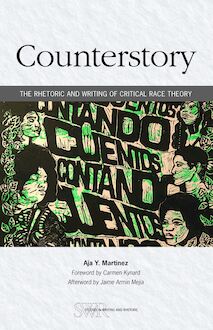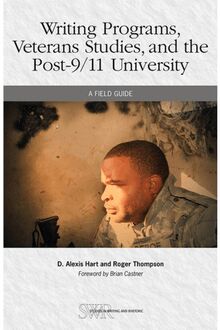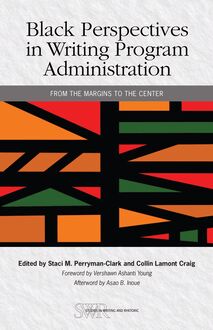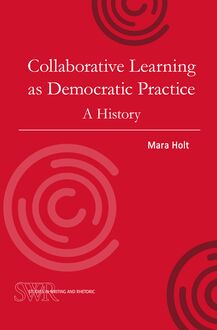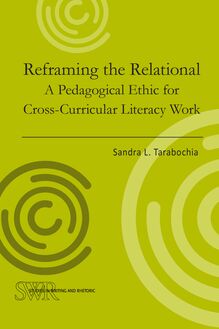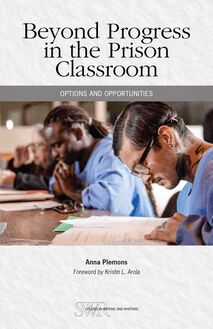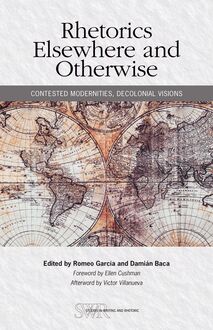-
 Univers
Univers
-
 Ebooks
Ebooks
-
 Livres audio
Livres audio
-
 Presse
Presse
-
 Podcasts
Podcasts
-
 BD
BD
-
 Documents
Documents
-
- Cours
- Révisions
- Ressources pédagogiques
- Sciences de l’éducation
- Manuels scolaires
- Langues
- Travaux de classe
- Annales de BEP
- Etudes supérieures
- Maternelle et primaire
- Fiches de lecture
- Orientation scolaire
- Méthodologie
- Corrigés de devoir
- Annales d’examens et concours
- Annales du bac
- Annales du brevet
- Rapports de stage
La lecture à portée de main
Vous pourrez modifier la taille du texte de cet ouvrage
Découvre YouScribe en t'inscrivant gratuitement
Je m'inscrisBlack Perspectives in Writing Program Administration , livre ebook
Découvre YouScribe en t'inscrivant gratuitement
Je m'inscrisEn savoir plus
Vous pourrez modifier la taille du texte de cet ouvrage
En savoir plus

Description
This collection centers writing program administration (WPA) discourse as intersectional race work. In this historical moment in public discourse when race and racist logics are no longer sanitized in coded language or veiled political rhetoric, contributors provide examples of how WPA scholars can push back against the ways in which larger, cultural rhetorical projects inform our institutional practices, are coded into administrative agendas, and are reflected in programmatic objectives and interpersonal relations. Editors Staci M. Perryman-Clark and Collin Lamont Craig have made a space for WPAs of color to cultivate antiracist responses within an Afrocentric framework and to enact socially responsible approaches to program building. This framework also positions WPAs of color to build relationships with allies and create contexts for students and faculty to imagine rhetorics that speak truth to oppressive and divisive ideologies within and beyond the academy, but especially within writing programs. Contributors share not just experiences of racist microaggressions, but also the successes of black WPAs and WPAs whose work represents a strong commitment to students of color. Together they work to foster stronger alliance building among white allies in the discipline, and, most importantly, to develop concrete, specific models for taking action to confront and resist racist microaggressions. As a whole, this collection works to shift the focus from race more broadly toward perspectives on blackness in writing program administration.
Sujets
Informations
| Publié par | National Council of Teachers of English (NCTE) |
| Date de parution | 27 février 2019 |
| Nombre de lectures | 0 |
| EAN13 | 9780814100400 |
| Langue | English |
Informations légales : prix de location à la page 0,1250€. Cette information est donnée uniquement à titre indicatif conformément à la législation en vigueur.
Extrait
CCC STUDIES IN WRITING & RHETORIC
Edited by Steve Parks, University of Virginia
The aim of the CCCC Studies in Writing & Rhetoric (SWR) Series is to influence how we think about language in action and especially how writing gets taught at the college level. The methods of studies vary from the critical to historical to linguistic to ethnographic, and their authors draw on work in various fields that inform composition—including rhetoric, communication, education, discourse analysis, psychology, cultural studies, and literature. Their focuses are similarly diverse—ranging from individual writers and teachers, to work on classrooms and communities and curricula, to analyses of the social, political, and material contexts of writing and its teaching.
SWR was one of the first scholarly book series to focus on the teaching of writing. It was established in 1980 by the Conference on College Composition and Communication (CCCC) in order to promote research in the emerging field of writing studies. As our field has grown, the research sponsored by SWR has continued to articulate the commitment of CCCC to supporting the work of writing teachers as reflective practitioners and intellectuals.
We are eager to identify influential work in writing and rhetoric as it emerges. We thus ask authors to send us project proposals that clearly situate their work in the field and show how they aim to redirect our ongoing conversations about writing and its teaching. Proposals should include an overview of the project, a brief annotated table of contents, and a sample chapter. They should not exceed 10,000 words.
To submit a proposal, please register as an author at www.editorialmanager.com/nctebp . Once registered, follow the steps to submit a proposal (be sure to choose SWR Book Proposal from the drop-down list of article submission types).
SWR Editorial Advisory Board
Steve Parks, SWR Editor, University of Virginia
André Habet, Associate Editor, Syracuse University
Kevin Browne, University of the West Indies
Ellen Cushman, Northeastern University
Haivan Hoang, University of Massachusetts-Amherst
Asao Inoue, University of Washington Tacoma
Carmen Kynard, John Jay College of Criminal Justice
Min-Zhan Lu, University of Louisville
Paula Mathieu, Boston College
Nedra Reynolds, University of Rhode Island
Jacqueline Rhodes, Michigan State University
Eileen Schell, Syracuse University
Jody Shipka, University of Maryland, Baltimore County
Vershawn Ashanti Young, University of Waterloo
Staff Editor: Bonny Graham
Manuscript Editor: Lee Erwin
Series Editor: Steve Parks
Interior Design: Mary Rohrer
Cover Design: Pat Mayer
Cover Image: Angelo Rodriguez
NCTE Stock Number: 03371; eStock Number: 03388
ISBN 978-0-8141-0337-1; eISBN 978-0-8141-0338-8
Copyright © 2019 by the Conference on College Composition and Communication of the National Council of Teachers of English.
All rights reserved. No part of this publication may be reproduced or transmitted in any form or by any means, electronic or mechanical, including photocopy, or any information storage and retrieval system, without permission from the copyright holder. Printed in the United States of America.
It is the policy of NCTE in its journals and other publications to provide a forum for the open discussion of ideas concerning the content and the teaching of English and the language arts. Publicity accorded to any particular point of view does not imply endorsement by the Executive Committee, the Board of Directors, or the membership at large, except in announcements of policy, where such endorsement is clearly specified.
NCTE provides equal employment opportunity (EEO) to all staff members and applicants for employment without regard to race, color, religion, sex, national origin, age, physical, mental or perceived handicap/disability, sexual orientation including gender identity or expression, ancestry, genetic information, marital status, military status, unfavorable discharge from military service, pregnancy, citizenship status, personal appearance, matriculation or political affiliation, or any other protected status under applicable federal, state, and local laws.
Every effort has been made to provide current URLs and email addresses, but because of the rapidly changing nature of the web, some sites and addresses may no longer be accessible.
Library of Congress Cataloging-in-Publication Data
A catalog record of this book has been requested.
CONTENTS
Foreword: A Forenote from an Angry Black Man: Blackness Should Always Be Center
Vershawn Ashanti Young
1. Introduction: Black Matters: Writing Program Administration in Twenty-First-Century Higher Education
Staci M. Perryman-Clark and Collin Lamont Craig
2. Administering While Black: Black Women's Labor in the Academy and the “Position of the Unthought”
Carmen Kynard
3. A Seat at the Table: Reflections on Writing Studies and HBCU Writing Programs
David F. Green Jr.
4. Forfeiting Privilege for the Cause of Social Justice: Listening to Black WPAs and WPAs of Color Define the Work of White Allyship
Scott Wible
5. Black Student Success Models: Institutional Profiles of Writing Programs
Staci M. Perryman-Clark and Collin Lamont Craig
6. Reflective Moments: Showcasing University Writing Program Models for Black Student Success
Alexandria Lockett, Shawanda Stewart, Brian J. Stone, Adrienne Redding, Jonathan Bush, Jeanne LaHaie, Staci M. Perryman-Clark, and Collin Lamont Craig
Afterword: Who Is Served, and Gets Served, in WPA Work?
Asao B. Inoue
Index
Editors
Contributors
FOREWORD: A FORENOTE FROM AN ANGRY BLACK MAN: BLACKNESS SHOULD ALWAYS BE CENTER
Vershawn Ashanti Young
University of Waterloo
OPENIN
Ahm a Angry Black Man
Ah say it loud
Wit plenty Style
B/c as James Baldwin say: “… to be a Negro in this country and to be relatively conscious, is to be in a rage almost all the time” (205). JB gotsta mean—for we in 20-upteen—that any woke black person is angry.
If dis true, then the other JB—that Godfather of Soul—might just as well had said: “Say it loud / I'm angry and I'm proud.”
THE DIALOGUE
(this exchange tween me & JB previews Black Perspectives in Writing Program Administration, a volume that includes insights on and from HBCUs, wit this very knowledge bespoke by WPAs from HBCUs! What's mo—tho this book is slammin in other ways too—is its progressive feminist focus and its attending specifying experiences of African American women.)
Me (to the first JB): Check dis: ahm writin this foreword for Black Perspectives in Writing Program Administration: From the Margins to the Center , edited by my peeps, Staci Perryman-Clark and Collin Craig (also see they Chapter 5 ). Dis joint heah is woke . Got no choice but to be wid the likes of Carmen Kynard ( Chapter 2 ) layin it down on the microaggressions that black WPA and black women specifically must endure—and do so to keep the black mind and body intact for dis heah work in writin instructin that she do. Then there's David F. Green Jr. ( Chapter 3 ) puttin narratives of Afrocentric instruction up front for all. He say we can take a page from the rhetorical habitus of HBCUs. So wid all this going on, JB, how do readers and me too learn from this and express woke rage?
JB : You have to decide that you can't spend the rest of your life cursing out everybody who gets in your way.
Me : What?! We … ah … ah … ah can't?
JB : As a writer [academic, scholar, teacher, or insert role] you have to decide that what is really important is not that the people you write about [or teach] are Negroes, but that they are people, and that the suffering of any person is really universal.
Me : Word?! So, the focus of woke rage then is on the humanity of students/colleagues/people in the world/who suffer/who are black.
JB : If you can ever reach this level, if you can create a person [teach a person, understand a student] and make other people feel what this person feels, then it seems to me that you've gone much further, not only artistically [or academically], but socially, than in the ordinary, old-fashioned protest way.
SPITTIN KNOWLEDGE, YUP, THEORIZIN
Aiight, JB on point on how to be woke . Although me and him may differ a lil bit on the value of the “ordinary, old-fashioned protest way.” Ah think protest important to any critical race progress; he think, at least in imaginative writing, that it overshadows the possibilities for empathy 'cross racial lines. He think this cuz in writin, the old protest way tend to blend blunt sociology into the literary human experience. At least dis what JB said Richard Wright's Native Son did in his review of that novel in “Everybody's Protest Novel.”
This volume then on fleek cuz it straight presentin what ahm calling this blended woke ness—protest and humanity, racialized pedagogical experiences (Lockett et al.), and the possibilities for racial empathy (Wible in Chapter 4 , and Inoue in Afterword).
So, let me get in where ah fit in on this blend then, and step to you wit two perspectives of my own. But fo ah offer my two protests, let me lay this on you bout black rage: As literary critic Addison Gayle says in his introduction to The Black Aesthetic: “The black artist in the American society who creates without interjecting a note of anger is creating not as a black man, but as an American. For anger in black art is as old as the first utterance by black men on American soil … “ (xv–xvi). Gayle heah, on one hand, just sayin o'er what JB up top said before—to be conscious and black is to be constantly enraged. But on the other hand, he sayin something more: black anger is a fruitful framework for analysis and critique that can lead to needed changes. In this case it's both recognizing where blackness belongs in writin programs, writin instruction, and writin centers—upfront and center—and enactin dis perspective.
PROTEST 1: THE ROAD TO WR
-
 Univers
Univers
-
 Ebooks
Ebooks
-
 Livres audio
Livres audio
-
 Presse
Presse
-
 Podcasts
Podcasts
-
 BD
BD
-
 Documents
Documents
-
Jeunesse
-
Littérature
-
Ressources professionnelles
-
Santé et bien-être
-
Savoirs
-
Education
-
Loisirs et hobbies
-
Art, musique et cinéma
-
Actualité et débat de société
-
Jeunesse
-
Littérature
-
Ressources professionnelles
-
Santé et bien-être
-
Savoirs
-
Education
-
Loisirs et hobbies
-
Art, musique et cinéma
-
Actualité et débat de société
-
Actualités
-
Lifestyle
-
Presse jeunesse
-
Presse professionnelle
-
Pratique
-
Presse sportive
-
Presse internationale
-
Culture & Médias
-
Action et Aventures
-
Science-fiction et Fantasy
-
Société
-
Jeunesse
-
Littérature
-
Ressources professionnelles
-
Santé et bien-être
-
Savoirs
-
Education
-
Loisirs et hobbies
-
Art, musique et cinéma
-
Actualité et débat de société
- Cours
- Révisions
- Ressources pédagogiques
- Sciences de l’éducation
- Manuels scolaires
- Langues
- Travaux de classe
- Annales de BEP
- Etudes supérieures
- Maternelle et primaire
- Fiches de lecture
- Orientation scolaire
- Méthodologie
- Corrigés de devoir
- Annales d’examens et concours
- Annales du bac
- Annales du brevet
- Rapports de stage
